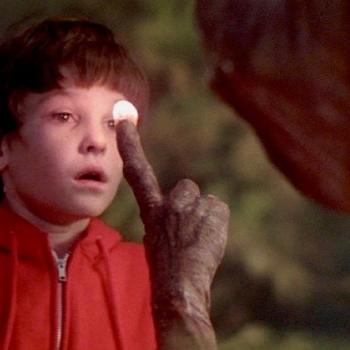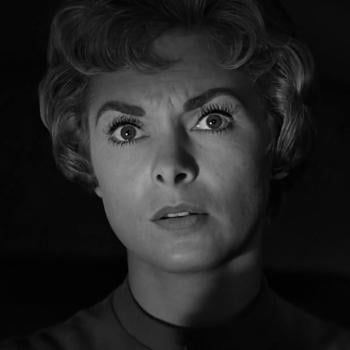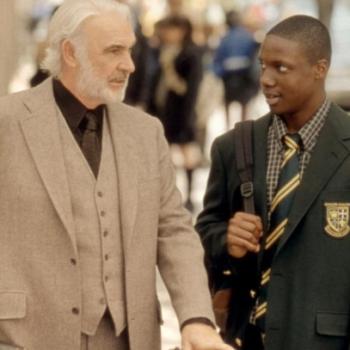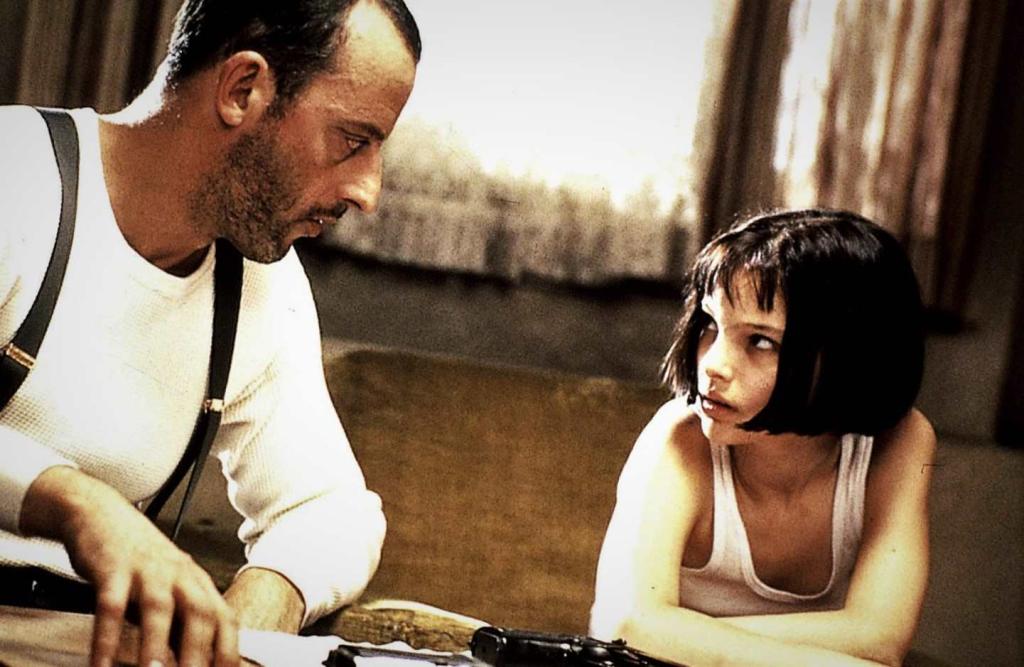
Like many of the films we discuss here, there are a lot of internal contradictions with Luc Besson’s Leon: The Professional that make it an unusual item of study for religious overtones. For one thing, it’s a very violent movie. The world these characters inhabit isn’t one where goodness abounds. Just so, it’s against this kind of moral desolation that glimmers of Christlike light really shine through, and that’s worth talking about.
At the start of Leon: The Professional, Matilda (Natalie Portman in her first feature film role) is a 12-year-old girl floundering in a household where she is not wanted. Her parents neglect her, her sister torments her. Matilda’s only comfort is her little brother, whom she genuinely adores. Leon (Jean Reno) lives in the apartment down the hall. He is also a professional hitman. When Matilda’s entire family, including her brother are slaughtered by corrupt drug officer, Stansfield, (played chillingly by Gary Oldman), Matilda takes refuge with Leon. And when she learns about his profession, Matilda asks Leon to train her in his line of work she can take revenge on the man who killed her brother.

The movie obviously has something to say about the futility of vengeance–graciously the movie doesn’t culminate Matilda’s ascension into assassin-hood–but what really drives me to write about this film is its comment on genuine goodness in a world that is drenched in corruption and violence.
The movie draws a parallel between the hell that is the criminal underworld in which people like Stansfield thrive and the loveless home life that Matilda is trapped in at the start of the film. Leon and Matilda live in a world that seems at times absent of love, yet they find something pure in their love for each other.
Leon himself embodies this paradox. He’s a professional killer, but he lives by a strict moral code. He doesn’t kill just anyone. All of his targets, at least those we see in the film, all appear to be themselves corrupt and immoral. Indeed, he’s the one of the only people in this world who appear to have an active moral compass. This opens up a bundle of questions, like whether someone who takes lives professionally could ever be afforded grace or serve as a vessel for Christlike goodness.

It’s worth noting that Leon himself is also a product and victim of this world that feeds on and begets carnage. The extended cut reveals that Leon took on the hitman’s life in response to his own love being killed many years before. Taking in Matilda, this act of genuine altruism from a certified killer, represent that chance for redemption that is available to all of us, however the evils of this life have stained us.
Because Leon does more than just save Matilda’s life. He creates a home for her. Together, they help each other open up emotionally, they make each other laugh, and, when circumstances call for it, they protect each other.
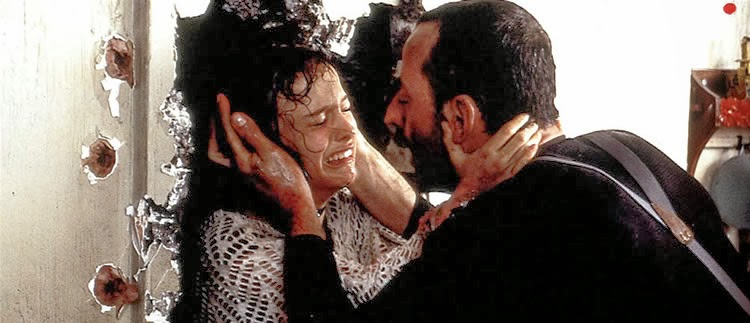
This warmth simply wasn’t available to Matilda at the start of the film. The tragedy is in how much Matilda appears to have absorbed this rancidness at such a young age. She’s cynical, despondent, bitter. There’s a spark of light in her, yes, that inner child that just wants to watch cartoons, but it’s flickering.
At the root of Matilda’s story is a desire to grow up faster than one should. In addition to innocence and benevolence, childhood also connotes helplessness, an inability to change one’s circumstances no matter how dreadful, and her circumstances certainly are dreadful. Matilda tries to take dramatic steps to shed her childhood prematurely by learning the hitman’s trade and trying to force a romantic relationship with Leon (which Leon does not feed).

Matilda tries to recompense for what this world has cost her. Her initial deal with Leon to be trained as a hitman is her way of trying to avenge the loss of her brother. Toward the end of the film, Matilda tries to deal with this by taking out Stansfield herself. This effort fails because, even ignoring that she’s a literal child, Matilda was never long for violence. Indulging in that would have scarred her, maybe irreparably. It’s merciful, then, that despite everything Matilda has to go through, she is allowed to exit this world of violence at the end with her purity intact.
Matilda trying to initiate herself into this world of violence is ironic because what really carries the most power in this world is love. Love is what makes a master killer change his stripes, and love is what rescues Matilda from her withering non-existence. Leon ultimately dies, yes, but Leon sacrifices himself to give Matilda a clean exit from this dark underworld of brutality.
And who knows? Now that Leon has shown her what a home should feel like, maybe she’ll be okay.





